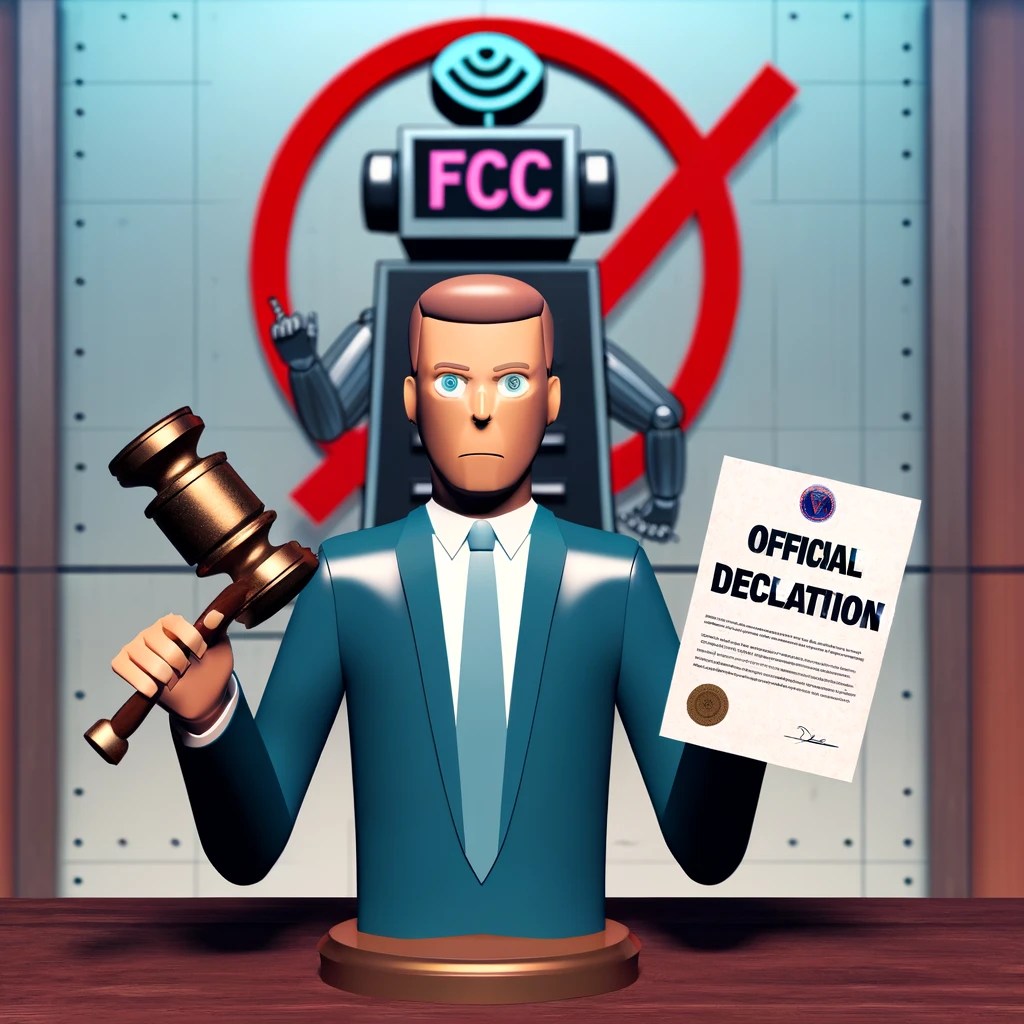The Federal Communications Commission (FCC) has officially declared robocalls with artificial intelligence-generated voices illegal. This new measure is part of the FCC’s fight against robocalls, offering one more weapon to counter telephone scams with automated voices. Although it cannot completely stop the spread of bogus calls, this statement is a step forward in protecting consumers.
The law and robocalls
Robocalls, or automated calls that send pre-recorded messages indiscriminately, are already prohibited by the Telephone Consumer Protection Act. This law prohibits the sending of artificial or pre-recorded messages to all phone numbers in the telephone directory. So the question was whether AI-generated voice fell into these prohibited categories.
The FCC decided to investigate the issue, seeking opinions from experts in the field, to consider whether AI-generated voice calls should be considered illegal. This decision was likely influenced by a high-profile case involving a bogus call from a fake President Biden in which he was urged not to vote in the New Hampshire primary election. The fraudulent operations involved in this case have been put in the spotlight, with the Attorneys General and the FCC stepping in to deter other fraudsters.
The FCC’s decision
After conducting the investigation, theFCC issued an official statement saying that AI-generated voice calls fall into the category of illegal robocalls. This decision aims to discourage the negative use of AI and ensure full consumer protection under the Telephone Consumer Protection Act.
The FCC statement also clarifies that the law does not provide exceptions for technologies that claim to provide the equivalent of a human operator. This prevents unscrupulous companies from exploiting any ambiguities in the FCC’s rules. Although voice cloning and other applications of AI in calls are still evolving, the FCC has already found uses that can uniquely harm consumers and people whose voices are cloned.
Consumer protection
The FCC’s decision aims to protect consumers from receiving automated calls with AI-generated voice. Requiring consent for such calls arms consumers with the right not to receive such calls or, if they do, the knowledge that they should be cautious about them. If consumers receive one of these calls, they are advised to record the call and report it to their local attorney general’s office, as they may be part of the recently established anti-robocall league to coordinate the fight against these scammers.

